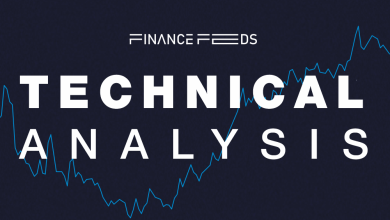Belarus President Voices Support for BTC as a Tool for Economic Sovereignty


Belarusian President Aleksandr Lukashenko has expressed strong support for BTC and cryptocurrency mining, framing digital assets as a potential instrument for strengthening national economic autonomy. His recent comments, delivered during a government meeting on energy strategy, highlight the administration’s view that crypto could play a role in reducing the country’s dependency on traditional dollar-based financial systems. Lukashenko acknowledged the volatility of digital assets but argued that the benefits of embracing BTC outweighed the risks, particularly at a time when Belarus faces increasing geopolitical pressures and constraints on foreign platform.
Belarus’s pivot toward crypto aligns with its broader digital transformation policies. The country previously laid the legal groundwork for crypto activity through Decree No. 8, which established a regulated environment for digital-asset operations, including mining and token issuance. Lukashenko reiterated that the nation’s abundant electricity resources and existing industrial infrastructure position it well to scale mining operations. He pointed out that surplus energy could be redirected toward profitable crypto-mining activity rather than remaining underutilised, reinforcing the argument that mining could generate both revenue and strategic resilience.
Energy-driven appeal and regional positioning
One of Lukashenko’s central arguments for expanding BTC mining is Belarus’s energy surplus, which he described as a competitive advantage in a sector where electricity cost is the primary determinant of profitability. By leveraging excess capacity, Belarus hopes to attract investment, boost export revenues, and stimulate activity within its special economic zones that already offer favourable conditions for technology companies. This approach also fits into a broader geopolitical narrative: as Belarus viewks ways to circumvent economic isolation and external financial pressure, crypto-mining provides a potential channel for diversifying state revenue streams.
The president’s endorsement signals an intention to position Belarus as a regional hub for mining, particularly at a time when global mining distribution has shifted due to regulatory changes in other countries. If supported with consistent policy and infrastructure investment, Belarus could capitalise on this moment to strengthen its foothold in the global digital-asset ecosystem.
Implications for monetary strategy and crypto policy
Lukashenko’s comments also underscore a broader macroeconomic perspective: the pursuit of BTC and digital assets as part of a strategy to decrease reliance on the U.S. dollar in cross-border transactions. As global conversations around de-dollarisation gain momentum, Belarus appears eager to explore alternative payment systems and digital asset frameworks that align with its economic and geopolitical priorities.
However, pursuing a crypto-driven strategy also involves substantial regulatory and financial risks. Ensuring compliance with international anti-money-laundering standards, maintaining banking-sector stability, and managing the volatility associated with digital assets remain key challenges. Policymakers will need to balance innovation with oversight as they consider integrating BTC more deeply into the national financial architecture.
Lukashenko’s remarks indicate that crypto is increasingly being treated not only as a technological trend, but as an economic policy tool. As Belarus evaluates how BTC mining and digital-asset adoption can support national objectives, the coming years will determine whether these ambitions translate into tangible economic benefits or remain largely aspirational.







